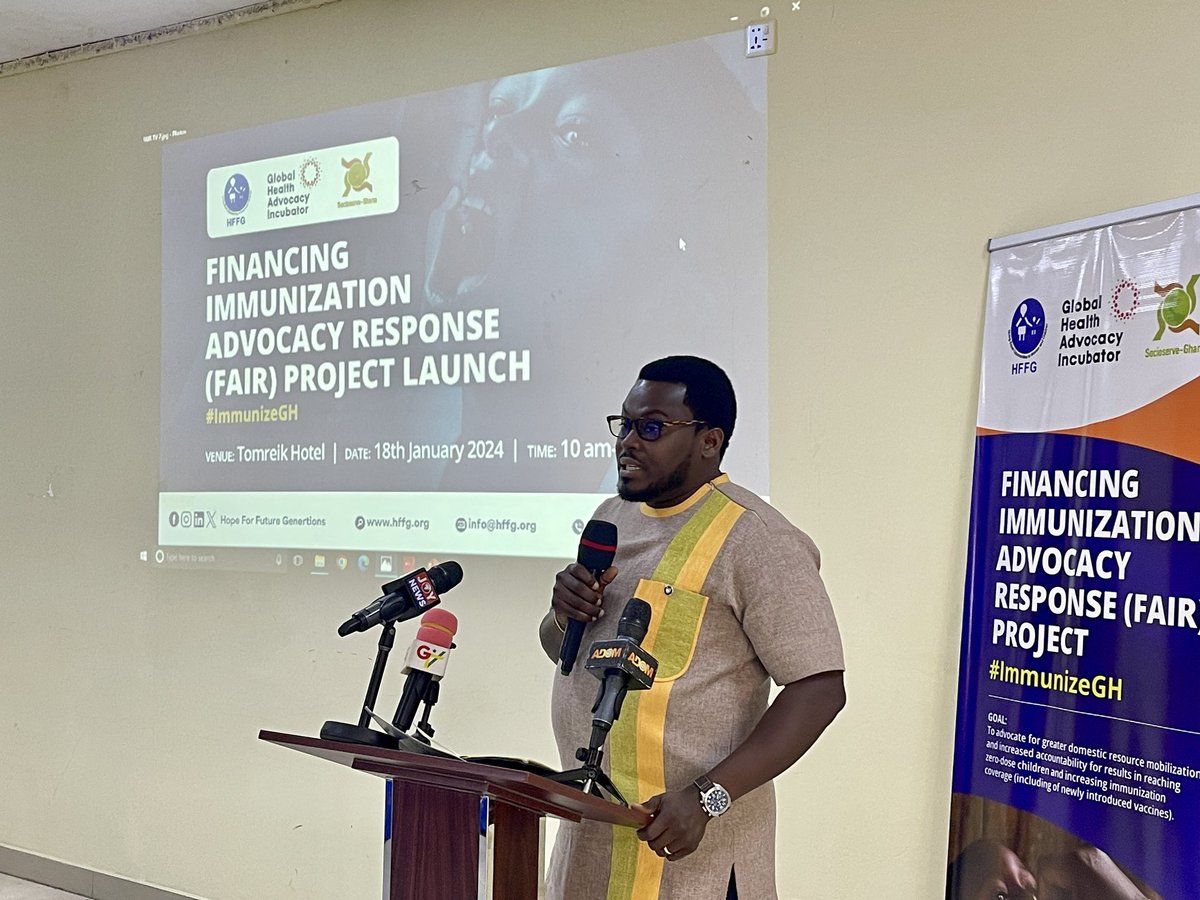- by Admin
- November 8, 2023
Click the link below to join Our WhatsApp group for daily brief on current trends in the country.
Join Here!
Loading

Ghana has been migrated onto the Accelerated Transition stage by GAVI, the Vaccine Alliance. This means that she is one step away to fully funding vaccine procurement for immunization. Currently GAVI supports about seventy per cent of the country’s immunization cost through a co-financing arrangement, but government would have to bear the full cost when the transition period elapses.
Hope for Future Generations through its Financing Immunization Advocacy Response Project (FAIR) seeks to strengthen immunization financing in the country by appealing to government to fulfil its obligations. Globally,
immunization as a public health intervention prevents the spread of infectious diseases and protects the wellbeing of communities. And for medical personnel, in the face of evolving challenges, it is essential to make immunization a priority. In Ghana, vaccination has improved life expectancy reducing under five mortalities.
It presently administers eleven vaccines including the malaria vaccine to protect children from fourteen vaccine preventable diseases. GAVI through a public-private partnership helps low- and middle-income countries to immunize children with routine and preventive vaccines.
Since 2001, GAVI supported Ghana’s vaccine procurement and immunization programmes. As a result, Neonatal Tetanus has been eliminated since 2011 in the country. There have been no reported cases of wild polio virus since 2008 and no deaths attributed to measles from 2003 to 2021, pneumonia and diarrheal cases have also reduced drastically.
Also, there’ve been no cases of meningitis reported since 2012 in the country. These notwithstanding the Ghana Expanded Programme on Immunization has frequently faced vaccine shortages due to financing gaps. At the launch of the Financing Immunization Advocacy Response Project (FAIR) by Hope for Future Generations the focal person for Immunisation at the WHO Mr. Fred Osei-Sarpong said WHO commits to partnering civil society organizations to advocate for sustainable health financing for immunization.
Member of Parliament of Techiman North and a member of the Health Committee Mrs. Elizabeth Ofosu- Adjare says the committee would continue to advocate for domestic resource mobilization to finance immunization efforts because of its immense benefits.
To empower countries to take ownership of their vaccination programmes, GAVI has pioneered an approach to co-financing and transition. The road map drawn by the ministry of Health, is expected to ensure sustained access to vaccines and vaccination programmes. It also means the role of civil society in this process is critical.
Partners further appealed to government to redirect COVID-19 funds and levy towards financing immunization services since COVID-19 is no longer a public threat.


Click the link below to join Our WhatsApp group for daily brief on current trends in the country.
Join Here!
0 Comments: